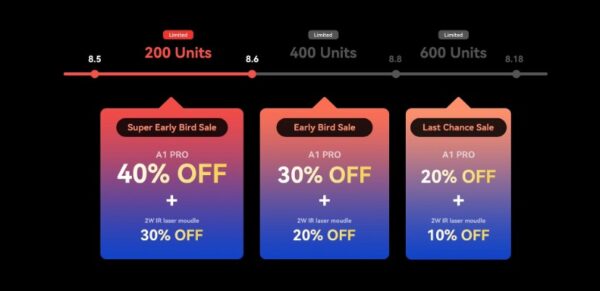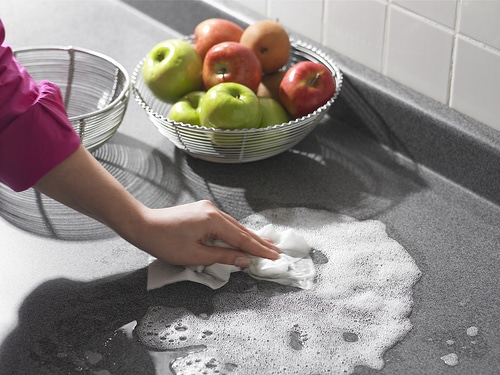Working from home has become the norm for many people these days. If you’re being forced back into the office after years of post-pandemic remote work, and don’t fancy returning to the work environment, it’s time to look for work from home jobs.
There are many benefits to working from home. Not only does it save businesses money on rent, bills and other costs, but studies have shown worker productivity has generally increased as a result.
According to research by Bospar, nearly 61% of workers reported being more productive working from home.
Remote work means you can look for jobs further afield, too. Those previously restricted by location or lack of transport can now work remotely in a multitude of roles previously thought to only be doable in an office.
But legitimate work from home jobs can be hard to find, so we’ve put together a mega list of jobs you could do from home this year.
Writing and language roles
Proofreading and editing

If writing is not your favourite practice, why not read? You can make a decent sum of money proofreading and editing in the comfort of your own home. It is a financially lucrative alternative to writing new content all day.
There are many great websites on which you can do this. There are specialised websites which focus on proof reading and editing, such as Proofread Anywhere and Proofreading Services.
To get started, you need to have a computer or laptop, and a good internet connection. It is important you also have good understanding of spelling and grammar.
The pay can range up to £30 an hour on average, depending on your experience or the urgency of the deadline you may be given. Plus, it is fully flexible, and you can work when it suits you. So, if you find yourself cringing at spelling mistakes, or catch when people use the wrong grammar and punctuation, proofreading may just suit you!
If you can speak multiple languages, you are also opening yourself up to more proofreading opportunities.
Upwork, Proofreading Services and Proofread Anywhere are websites which specialise in proofreading jobs and are a great place to start. When you gain some experience, you may even advertise your services on a freelance basis, on websites such as Fiverr and Freelance Directory.
Become an eBook author

If you have a flair for writing, why not try your hand at being an author? It may seem like an impossible dream, but the rise of the internet and eBooks has allowed this dream to become a reality for more people than ever.
Writing and publishing eBooks, whether it be fiction or non-fiction, is far easier to achieve than trying to publish through a large publishing house. Plus, it saves you much more time and money!
So, what are the steps you need to take to write and sell your own eBook? Firstly, choose a target audience. Decide whether you are writing a book for children, young adults or adults and whether you are going to write a non-fiction or fiction book. From there, you can decide whether you are going to write about space, produce a classic fairy tale or even lose yourself in writing a gritty sci-fi novel.
The hardest part about publishing your own book is the actual writing part. This takes time and dedication; thus, it is important to be passionate about writing. A poorly written book, done for the sake of payment, is futile, as it could result in little to no buyers.
You need to be a marketer, too
So, you have written your book. Now what? You will need to format the text of your book in the way you want it. Your font choice, font size and layout will need to be consistent throughout the book. You should also try to design or create a cover for your book to make it stand out.
It’s important to research where you’re going to sell your book. Many new authors start with Amazon Kindle, while others ‘go wide’ and use Kobo, Google Books, and Apple Books, or pay to distribute to loads of online platforms with a distributor like Draft2Digital.
Amazon Kindle Direct Publishing (KDP) is a popular choice. It is free to use and you can make up to 70% in royalties from each purchase of your book. KDP also offers some free software to help you publish illustrated books if needed. If you choose to publish your book in the Kindle Unlimited programme, you can’t publish it on any other site during the 90-day period.
Kobo offers up to 70% in royalties also and is available in almost 200 countries. There are also no restrictions as to where else you are able to publish your book and can publish it on other similar websites. Some publishing sites may restrict you from selling your work elsewhere – always read the fine print!
Once you have chosen a digital publisher, decide a price point for your book. Start low and increase your prices as you grow and establish yourself as an author.
Freelance writing

As a freelance writer, you will write and edit for publications and businesses. This could be for companies that work both online and offline. You could write for many types of publication and media, such as magazines, newspapers and blogs. You may even write content and copy for a company’s website or social media account.
Of course, it is entirely up to you which services you choose to offer. A good place to start is to create and write your own blog. This is the best way to showcase your writing talents if you don’t yet have a portfolio. It also allows potential clients to find you.
Once you have published a few pieces, you can create an online portfolio. This allows people to see the way in which you write and help you get hired!
To be a successful freelance writer, you will need a PC or laptop, access to the internet, and of course a good understanding of written language, spelling and grammar. The great thing about being a freelance writer is that most clients hire you based on your proven talent via your portfolio, rather than your work history. Therefore, it is not imperative to have any specific qualifications.
If you are a little rusty on your punctuation or just want a refresher on how to write in an engaging way, it may be a good idea to seek out a short writing course. FutureLearn is a great place to find free online courses.
Browser add-on Grammarly is also free and extremely useful. It is a built-in proof reading tool which automatically alert you to spelling and grammar mistakes.
There are hundreds of websites on which you can advertise your freelance writing services. Copify, Bark, Contently, Journalism.co.uk and YunoJuno are just some of the sites which can help you launch your freelance career. Online Writing Jobs is also a great hub to connect you to freelance work.
How much should you charge? It depends on how much experience you have as a freelance writer and how large your portfolio is. Small gigs could earn your £20-£30, and larger projects which run over a longer period of time could land you £200-£300. The more you write, the more you can charge!
DO NOT USE CHAT GPT FOR YOUR WORK. There are lots of reasons for this, such as going against your client’s agreement with you. More than that, it is inaccurate and could result in you losing work. A lot of freelancers are actually hired by companies who tried to use ChatGPT for their marketing copy and realised it needed to be fixed by a real human!
Transcribing and translating

Companies worldwide are always seeking out people to transcribe audio. Whether it be transcribing an interview, a television show, or even a brand’s marketing video or advert, there is always work to be done in this field. Every day is different, and you will often be asked to complete tasks such as captioning videos or film.
If you are fast and accurate when you type, this may be perfect for you. However, it is not essential, and you will likely build up your speed with experience. You will also need a computer or laptop with internet access. A pair of good headphones which allows you to hear with clarity may also be very useful to avoid distraction.
When it comes to the earning potential of a role such as this, you will most often be paid per audio, or per minute of the audio. Plus, if you speak more than one language, you can be paid large amounts of money to translate subtitles – an average of $958 (around £702) a month!
Think you are up to the task? Visit websites Rev, HappyScribe, TranscribeMe! And Go Transcript to get started!
If you are keen to do translation either instead of, or as well as transcribing, Gengo and Upwork are both great websites to kickstart your translation career.
Online tutoring

The pandemic has left thousands of children and teenagers across the country with huge gaps in their education. After lockdowns and loss of in-person teaching time, online learning has made it difficult for many students to keep on top of their learning and schoolwork.
That is why the world of online tutoring has exploded in recent years and has become a lucrative business for many. Companies such as MyTutor are expanding rapidly, and always looking for new tutors to join them. With earnings of up to £20 an hour, it is a great way to earn money. These earnings can increase as you progress.
For most online tutoring roles, you don’t even need qualifications! You just need a passion for helping others and the ability to be able to work with others. It is a great experience and helps to build confidence in both the tutor and the student. Plus, you will be making a difference to students around the country.
This type of role may suit you if you have recently graduated, have previous teaching experience, or have a particular interest and capability in a certain topic or subject. However, this is not essential.
FirstTutors allows you to set your own fees. Plus, the host website does not take a cut of any of your earnings, meaning you receive 100% of the money you make from your hard work. TutorHunt is another website which allows you to earn through online tutoring.
Pearson is also a great place to become a tutor, as you are only expected to commit to a minimum of two hours a week. This makes it extra flexible, and you can work as much or as little as you would like. However, to work for Pearson, you are required to have previous teaching experience.
Creative roles
Baking

The Great British Bake Off is a firm favourite across the country. In fact, viewers love it so much that it impacts the amount of home baking we do. It has also resulted in increased numbers of baking businesses year on year since the show began in 2010.
If you love baking, why not add to this number and start your own baking business from home? Not only is it a wonderful and creative way to make money, being your own boss means you can choose when you work, and how many orders you will take.
There are rules and regulations which must be legally followed when it comes to having a business which sells food. The Food Standards Agency has a list of rules which must be followed in order to have a legitimate business, such as ensuring the surroundings are clean and hygienic and having adequate lighting and ventilation.
Simply Business has a handy guide which details the steps you must take to register your business and get insurance.
When you have done the ‘business’ side of things, you can get baking! You could sell to your local community, as well as starting an online business. We have a whole article all about how to make money from baking – check it out here.
Sell arts and crafts

If you have an artistic streak in you, you could work from home selling homemade arts and crafts. This could be anything from selling paintings and drawings to selling handmade greetings cards, soaps and knitted scarves and hats.
The pandemic has resulted in many people choosing to shop local and support small businesses, particularly when it comes to big events such as Christmas and birthdays. Thus, selling handmade greetings cards is a good way to make money. Plus, with the availability of the internet, you can broaden your customer pool and earn even more.
If you are someone who loves being creative, this could be for you. Plus, if arts and crafts and creating handmade and unique items is something you do in your spare time anyway, why not make some money out of it?
It is important to make sure you plan the cost of materials, wages for yourself, and how much you are going to sell your handmade items for. You want to make a profit, so planning this will ensure you can make maximum pennies.
You could even offer to undertake commissions for increased income. For example, if you are selling hand painted postcards, you may offer to paint a copy of a photograph provided by a client or include a specific name or place on the card for a slight price increase.
Some other ideas of handmade items you could sell include:
- Jewellery
- Glass or metal art
- Hampers and gift baskets
- Bath bombs
- Candles
- Hand painted items e.g. plant pots, mugs and vases
- Hand stitched items e.g. pillows, clothing and tote bags
- Magnets, pins and stickers
Remember, items such as handmade cosmetics will need to be made in accordance with Cosmetic Product Rules and Regulations in order to be sold legally. You can read the regulations here.
When you have decided the product or item you are going to create and sell and the price point, you can choose the platform you are going to sell them on. Facebook Marketplace, Etsy and eBay are accessible and easy to use platforms. Facebook Marketplace is particularly useful for achieving local sales, which can lead to your business growing through word of mouth in your local area. They also don’t charge selling fees, unlike other platforms.
Etsy charge 15 pence per listing, and the listing lasts for four months or until the item sells. After this, you will have to relist the item. When you sell an item, there is a 5% transaction fee and a payment processing fee of 4% plus 20 pence. eBay charges a 10% fee when an item sells, which includes the price of the item, tax and postage.
There are plenty of other options for selling handmade items, such as Amazon Handmade and Folksy. We also have a great article all about selling personalised items. You can read it here.
Online music teacher

As previously discussed, online tutoring is a great way to make money from home. This goes for music tutoring, too. If you are proficient in piano or triumphant at the trumpet, becoming an online music teacher may be a great route to take.
Not only can you use the websites previously mentioned to tutor students online, but there are multiple websites which are specific to teaching music, allowing you to monetise your skills. These websites include Music Teaching Online. You can charge whatever you like, and the more experience you have in your chosen specialism, the more money you can ask for per lesson. Tutorful, although not specifically only for music tutoring, is another great platform to advertise yourself on.
You may need specific qualifications to do this through some websites. However, you could always create your own website or social media page advertising your services via video call. This way, you can share your music skills and enhance the skills of others, even if you don’t have specific qualifications and simply love music.
For this, it is important to have a good internet connection and access to a PC or laptop. You may even wish to invest in an external microphone to ensure clear sound when teaching.
Freelance video editing and animation

If you have skills in video editing or even animation, you could make plenty of money as a freelancer. These technical skills are highly sought after. Video animation, in particular is a highly valued skill due to its rarity. It is not often people can animate and produce high quality video content. So, if you are lucky enough to be able to do either of these things, you are in luck!
To start with, you may choose a particular genre of video you’d like to edit. For example, you may prefer short, snappy content, like Youtube videos or adverts. You may wish to immerse yourself in television and film editing if you prefer a bigger task. If you aren’t fussed and are open to editing videos of any type, you may broaden your earning potential.
Ensure your skills are up to scratch. You may wish to familiarise yourself with software you have not used for a while or even practice on sample videos to refresh yourself. Taking a quick course may also give you the opportunity to identify any gaps in your knowledge.
Similarly, having the correct equipment and software in your home is imperative in this role. It is not a job where you can just ‘wing it’. This is also a role where having a portfolio is essential for getting clients. If you have not yet done any professional or commissioned work, perhaps take the time to create your own videos or animations. The time taken to do this is an investment that will almost certainly pay off.
As with many freelance roles, the more experience you have, the higher your rates can be. You may charge per project or base your fees on the length of the project. For a full-length film, you might decide you can complete the task within 6 months and charge on this basis. When it comes to editing or animating a short advert, you may charge per hour of your time.
Of course, some of the freelance websites previously mentioned within this article are perfect for advertising your skills. Fiverr, Upwork and Gigged allow you to gain clients on a freelance basis. Whilst you are building your portfolio, you may choose to advertise your services on social media, or even do work for friends and family for little to no cost to gain experience which you can showcase to potential clients.
Indeed have a wonderful career guide for being a freelance video editor here.
Seamstress/Seamster

Believe it or not, most people nowadays do not have the skills required to even do small tasks such as sewing up a hole in the seam of their clothing, let alone anything larger such as modifying clothing.
There are thousands of people in need of clothing repair, and with people becoming more aware of their spending, make do and mend has never been more fitting.
If you possess the skills needed to repair and alter clothing, you could make a business from it in your home. The amount you charge will be dependent on your skill set and experience. You could perhaps charge per item or per day it takes you to complete the job.
The power of the internet also means you can gain clients from across the country. Not only can clients fine you online, but if you possess impressive skills, people may request your work specifically, and post items to you.
Gumtree is a popular place to advertise for freelance work. It is important to showcase your work, so make sure to take photos of any alterations you do. On PeoplePerHour, some freelancers in this field charge from £7 to £75 per hour! Plus, you can work from the comfort of your home with cups of tea on tap. Perfect!
Of course, you could always create a social media presence advertising your services. You could start by helping out friends and family and expand through word of mouth.
It is also essential to have the correct equipment and tools needed to undertake this role. You want to produce the highest quality work, after all. Any equipment you need to buy should be seen as an investment. The better the work is that you produce, the more likely to you are receive great reviews and be recommended to others.
Services
Data entry

Hundreds of businesses across the UK hire data entry clerks to work remotely. Although some of the roles may be temporary, it is easy to pick up work with the help of the internet.
Jobsites such as ZipRecruiter, Indeed and Reed are a minefield of data entry clerk roles. After the pandemic in particular, there has been an increase in remote opportunities of this kind.
The rate of pay is not to be sniffed at, either, with some firms paying £25+ an hour for this type of work. If you are proactive and have a keen eye for detail, this job is perfect for you. You will do well to have strong IT and computer skills and have access to a computer and internet connection. Experience in data entry or administration roles will also put you in good stead.
If this appeals to you, but you do not feel you have relevant experience, there are plenty of online courses in data entry and administration. Reed suggests a range of online courses, starting from just £10. As with any costs incurred, it is important to think of them as an investment in your skills and future job roles.
Virtual Assistant

A virtual assistant (VA) is someone who provides administrative, technical and creative assistance via a remote home office. According to The VA Handbook, the average hourly rate for a VA in the UK is £30 per hour.
You may work as a VA for a company or an individual, and if you choose to be a VA on a freelance basis, you can build up a few clients to work for over the week to ensure you have regular income.
When working as a VA, it is important to take into account extras you may have received whilst working as an employee previously, such as holiday pay, sick pay and maternity leave, so it is important to take this into account when deciding your hourly rate. It is also a good idea to take things such as increased use of gas, electricity and water in your home into account too.
It is also a good idea to find your niche. If you are particularly good at administrative tasks, this may be the main focus of your work. You may have experience in extras such as payroll, project management and customer service, and thus offer these as jobs you are willing to undertake.
As with many of the work from home jobs mentioned, it is important to have a good internet connection and access to a computer or laptop. It is also useful to have a working smartphone in a role such as this, as you will likely be asked to take the occasional phone call or communicate with your employer or client on the phone.
It’s also well-suited to those who have good written and spoken communication skills and can stay organised and on top of tasks. Self-motivation is key when you are self-employed.
So how do you become a VA? As with other freelance roles, it is important to establish yourself through social media, a blog or website, showcasing your skills and experience. Advertising on freelance websites is also beneficial as it broadens the number of clients exposed to your services.
Laundry and Ironing

Marc, who is one of our team here at MoneyMagpie, recently informed us of a neighbour of his who has a successful ironing business, run from her own home. You would be surprised at just how many people require the help of others to do their ironing for them.
Whether they are unable to do it themselves due to disability or lack of time due to other commitments, people are more than happy to pay others to do the task for them.
It doesn’t have to be limited to ironing, either. Washing, drying, steaming and pressing are also tasks people are willing to splash their cash on.
This job is perfect for those who live within a community, as word of mouth is likely to be the best way to get clients. Advertising on local online marketplaces is beneficial, as it gets the word out about your home laundry business. To start with, you could offer your services to friends and family, and ask them to share their experience with people they know.
It may also be beneficial to invest in getting some business cards and flyers printed. Flyers can be posted through letterboxes and pinned up in local shops too. Business cards are good to have handy for people you meet day to day. Creating visibility surrounding your business is imperative when wanting to gain new clients.
Of course, you will need some specialist equipment for this. You may opt to wash, dry and iron to begin with. These are fairly straight forward tasks allowing you to build up some funds. You can then invest in other equipment, such as a steamer. If your iron isn’t the most reliable, it’s worth investing in a new, high quality one, as well as a sturdy ironing board.
When deciding how much to charge clients, you may wish to charge per garment or per hour. Remember to incorporate other costs into your rates. This includes increased water and electricity use resulting from the washing machine, dryer and iron. You also need to account for your work, and make sure you are getting a wage!
Some ironing businesses online charge £25 an hour, and charge extra for garments which need special care and attention. You can also team up with local businesses such as boutique hotels to iron their tablecloths and promote your services to guests.
Disclaimer: MoneyMagpie is not a licensed financial advisor and therefore information found here including opinions, commentary, suggestions or strategies are for informational, entertainment or educational purposes only. This should not be considered as financial advice. Anyone thinking of investing should conduct their own due diligence.
The post Ultimate Guide: Work from Home Jobs for Everyone appeared first on MoneyMagpie.
Labels: News







 How to make money with Wicked-inspired events and costume ideas
How to make money with Wicked-inspired events and costume ideas




















